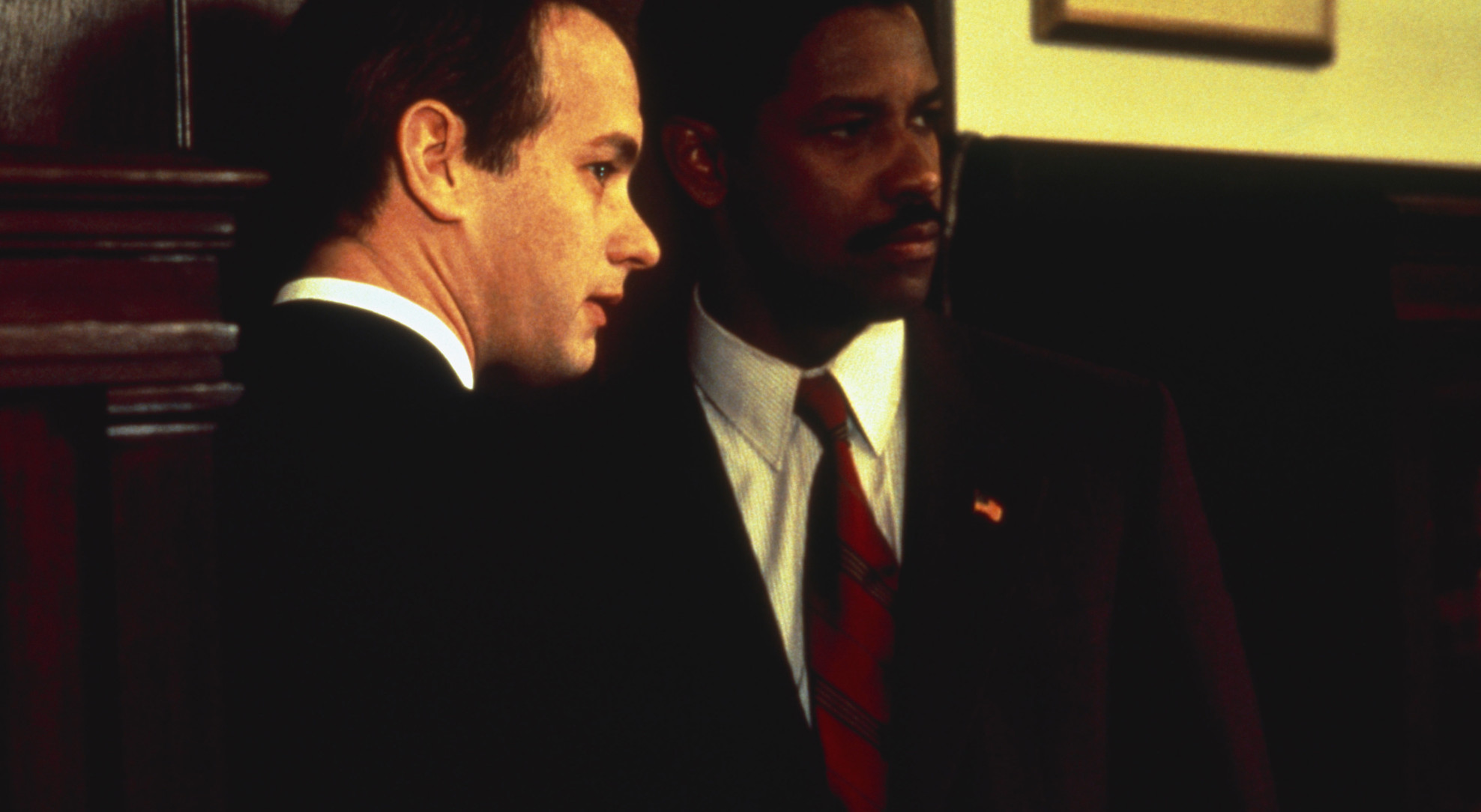Philadelphia
Jonathan Demme

© Park Circus, Sony Pictures
Andrew Beckett is a young lawyer with a promising career ahead of him, but when he contracts HIV, his firm decides to dismiss him. He hires a black, homophobic colleague to help him sue his former employers.
Cast : Tom Hanks, Denzel Washington, Joanne Woodward, Jason Robards, Antonio Banderas, Mary Steenburgen
Scenario : Ron Nyswaner
Cinematography : Tak Fujimoto
Editing : Craig McKay
Music : Howard Shore
Scenario : Ron Nyswaner
Cinematography : Tak Fujimoto
Editing : Craig McKay
Music : Howard Shore
Production : TriStar Pictures, Clinica Estetico
Distribution : Park Circus
Distribution : Park Circus
The first Hollywood film to deal with the HIV/AIDS virus and the issue of homophobia, Philadelphia was partly inspired by two lawsuits, one brought by Geoffrey F. Bowers against the law firm Baker & McKenzie, and the other by Clarence B. Cain against Hyatt Legal Services, for unfair dismissal resulting from a clause discriminating against people with acquired immunodeficiency syndrome. Directed by Jonathan Demme, the film benefits from the expertise of Garrett Brown, inventor of the Steadicam and cameraman on the set. From the opening credits, the city of Philadelphia (shots accompanied by Bruce Springsteen’s famous song, Streets of Philadelphia) is observed with great fluidity. What is more, a constant momentum towards the other is created by the camera’s habit of moving through the streets, towards houses, through the corridors of the law firm and the hospital, and later into the courtroom. Added to this, numerous subjective camera shots highlight the visible symptoms of AIDS, particularly Kaposi’s sarcoma, which causes skin lesions on Andrew Beckett’s (Tom Hanks) face. In addition to the immersion provided by the Steadicam, a few scenes of amateur footage emphasise the creation of a memory of someone who will soon be gone. All of these effects, along with the prestigious cast, foster empathy for a character who is contaminated, even though the very subject matter of the film had scared off a number of producers. (Sarah Ohana; cinematheque.fr)
